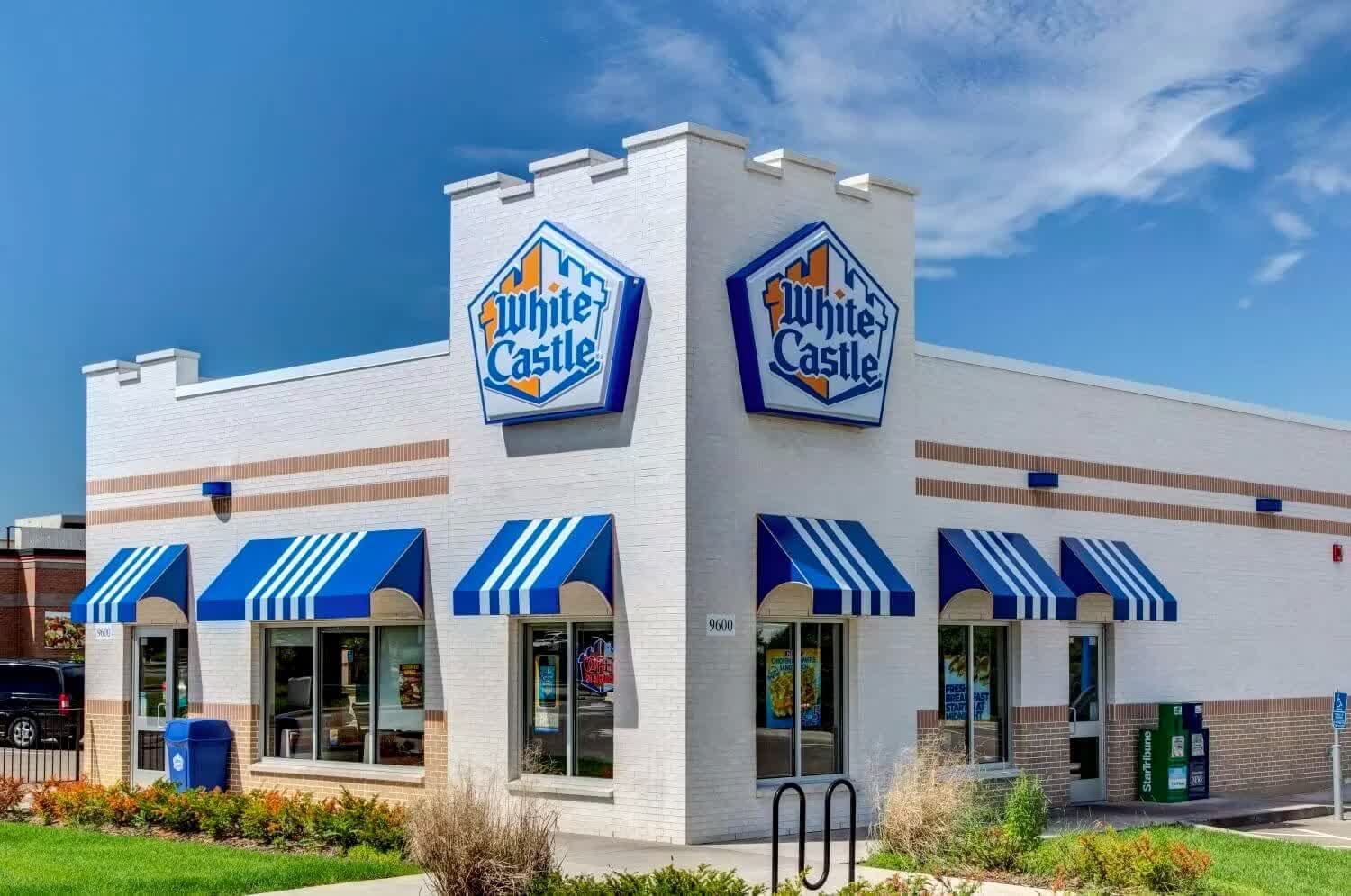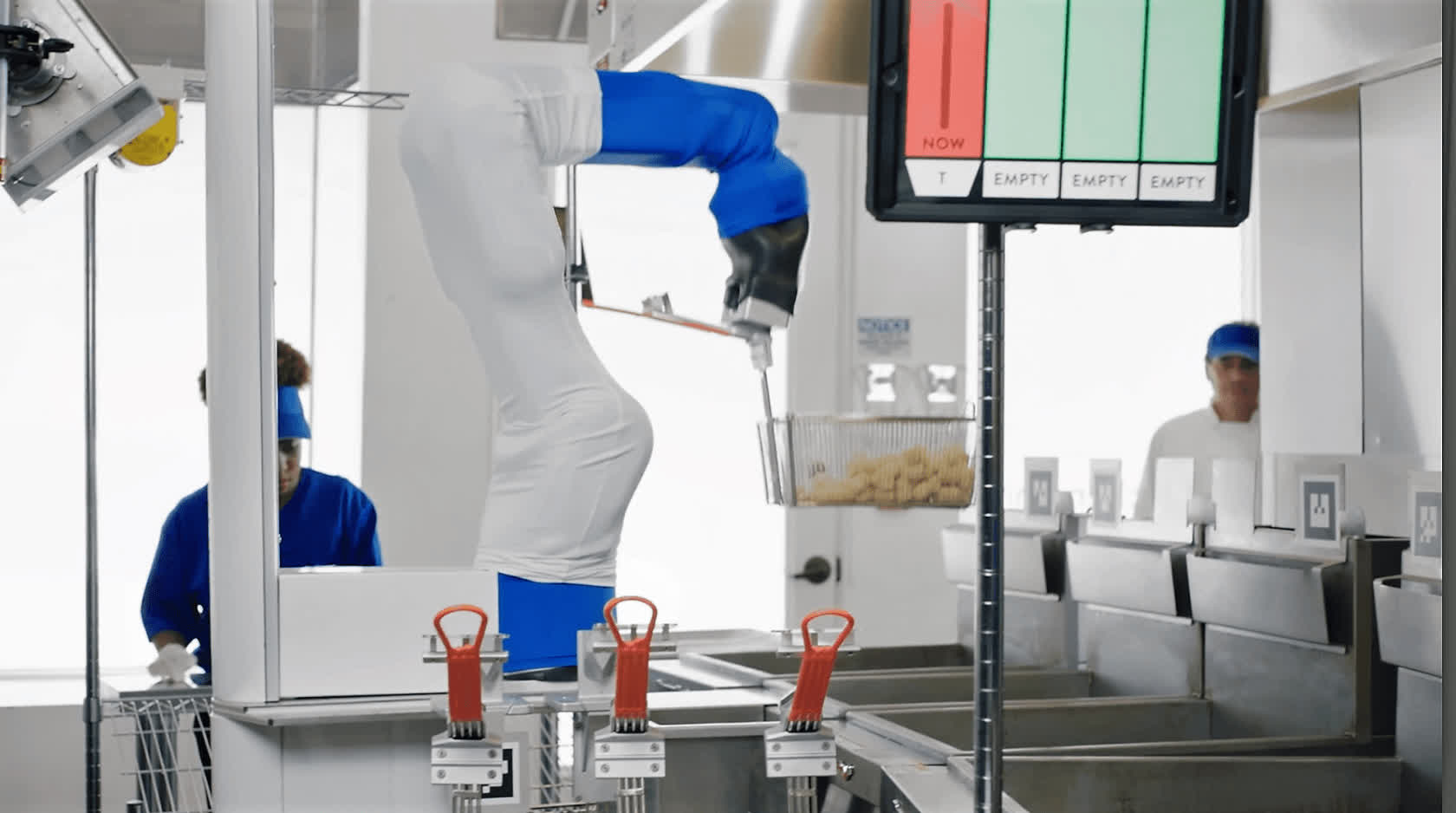In brief: A full robot takeover might still be a few decades – or centuries – away, but technology's growing influence over our day-to-day lives is easy to observe. Indeed, after a seemingly successful pilot test, national burger chain White Castle will be using tech to automate the patty-flipping process across 10 more locations.
For a bit of context on this situation, White Castle began replacing some of its cooks with robots in one of its restaurants in September. The justification for the test mostly related to Covid-19-related issues – maintaining social distancing in often-cramped fast-food kitchens is difficult, as is ensuring potentially-infected employees don't accidentally contaminate food.
To take steps toward solving the dilemma, White Castle decided that some food preparation could be handled by robots instead of people. And so "Flippy" was introduced: a "robot-on-a-rail" (ROAR) system that can fry nuggets, flip patties, and assemble burgers autonomously.

Flippy's initial debut saw the bot serve up over 14,000 pounds of food, which isn't bad for a first run. That number will grow considerably with Flippy's wider-scale White Castle deployment, which begins in 2021. Further specifics, such as which stores will receive the bots and when the roll-out will finish, are still up in the air.
"Artificial intelligence and automation have been an area White Castle has wanted to experiment with to optimize our operations and provide a better work environment for our team members," said White Castle CEO Lisa Ingram in a statement. "We believe technology like Flippy ROAR can improve customer service and kitchen operation."
Whether or not Ingram's beliefs will line up with reality remains to be seen. Replacing human workers with robots might sound like a good idea on paper, and it might have worked well at one White Castle location, but we wouldn't be surprised if some hurdles pop up as the test expands across the US.
